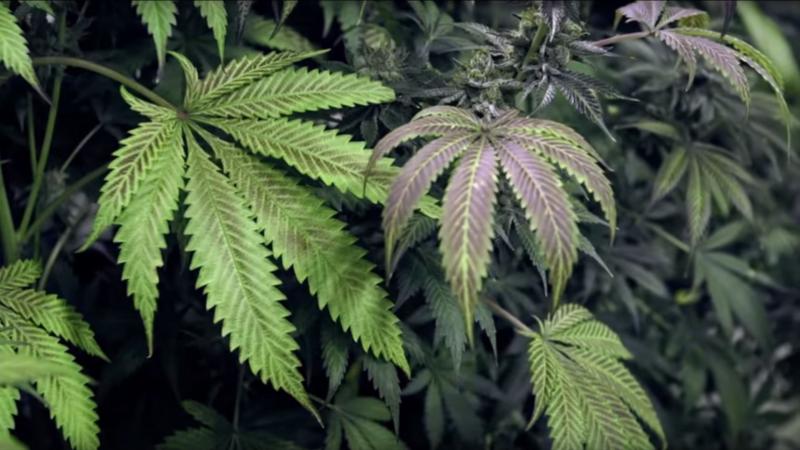Delayed opening for third weed dispensary in Sussex
Supply chain issues and contractor delays have forced the delayed opening of a third medical marijuana dispensary in Sussex County.
About this time last year, the state awarded licenses to three vendors – Valor Craft Cannabis Company, CannaTech Research Inc., and EzyCure LLC – to open a total of five new dispensaries across the state. At the time, CannaTech was expected to open a dispensary in Georgetown sometime in the fourth quarter of 2021.
Now, the opening of Sussex County’s third dispensary isn’t expected to happen much before early summer 2022, said Paul Hyland, director of the Office of Medical Marijuana.
“COVID has caused supply chain issues and staffing problems for the contractor, resulting in delays related to millwork and other building materials,” said Hyland in an email Jan. 7. “Although no exact date is available yet, early summer 2022 looks like a reasonable goal.”
Hyland said CannaTech is working through the zoning and permitting process in New Castle County to start construction on its growing and processing facility. The original plan called for building a facility in unincorporated Kent County, he said, but the pandemic caused too many obstacles related to obtaining utilities and sufficient power at the site.
“It was agreed rehabbing a larger, existing structure would be more expensive than the original proposal, but ultimately several months faster to get supply to market,” said Hyland.
Not all the companies awarded contracts last year have faced the same delays. EzyCure opened its Felton retail location, called The Farm, in August. The addition of The Farm makes a total of seven dispensaries across the state – First State has two, one in Wilmington and one in Lewes; Columbia Care has three, one in all three counties; and Fresh Cannabis has one in Newark.
According to the most recent data from the Office of Medical Marijuana, the number of medical marijuana patients in Delaware is triple the amount the state had anticipated when the law creating the program was passed in 2011. In the past, Hyland has said analysts expected the patient population to top out around 4,700 to 5,000 patients. As of Jan. 7, he said, there are a total of 13,803 patients in the state – 7,042 in New Castle County; 4,323 in Sussex; 2,438 in Kent. Of the total patient population, there are fewer than 10 pediatric patients.
Despite the unexpected demand, it’s unclear when, or if, the state will be issuing another round of requests for proposals for more dispensaries. Hyland said with the new companies opening this year, the state has plenty of growing capacity, but his office is continuing to work to expand the retail access points to underserved areas. He did not disclose when the state might issue another round of requests for proposals.
The same data provided by the state shows while there was about a 22 percent increase in patients from calendar year 2020 to 2021 – 11,319 to 13,803 – there was a nearly 50 percent increase in medicinal sales – $27.7 million to $41.3 million.
Hyland contributed the rapid increase in sales to the issuance of regulations related to marijuana-infused edibles last year, which he said have grown significantly in popularity. Patients are also purchasing more vape and concentrate products, he said.
“However, flower is still the most purchased product,” said Hyland.
CannaTech could not be reached for comment.
New version of bill legalizing marijuana in Delaware introduced
The state’s General Assembly began the first week of its legislative session Jan. 11. Less than 48 hours later, Rep. Edward Osienski, D-Newark, introduced a bill that would legalize marijuana in Delaware. The new bill, HB305, has been introduced by Osienski as a revised version of a bill he introduced last year, HB105.
According to a Jan. 13 press release from the Delaware Cannabis Advocacy Network, HB305 now incorporates bipartisan amendments involving laboratory testing facility accreditation; additional underage prevention requirements for product packaging and labeling; a business plan requirement for cannabis business applicants; and a few technical changes.
The bill also creates the Justice Reinvestment Fund, which, according to the bill’s synopsis, is intended to “be used for projects to improve quality of life for communities most impacted by the prohibition of marijuana and ‘war on drugs’ era policies.”
The bill has been assigned to the House Health & Human Development Committee, which has no meetings scheduled as of press deadline Jan. 13.
Chris Flood has been working for the Cape Gazette since early 2014. He currently covers Rehoboth Beach and Henlopen Acres, but has also covered Dewey Beach and the state government. He covers environmental stories, business stories and random stories on subjects he finds interesting, and he also writes a column called Choppin’ Wood that runs every other week. He’s a graduate of the University of Maine and the Landing School of Boat Building & Design.






















































